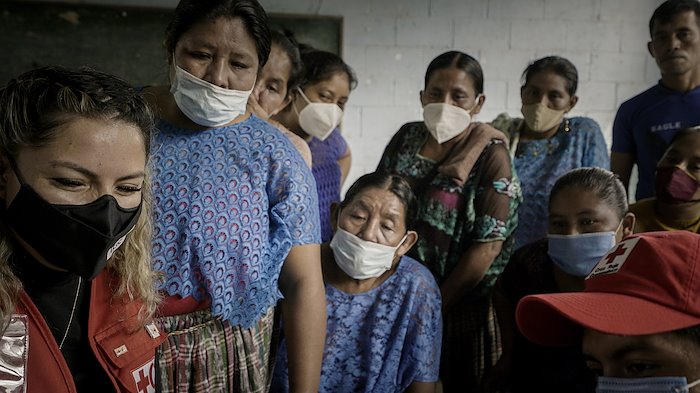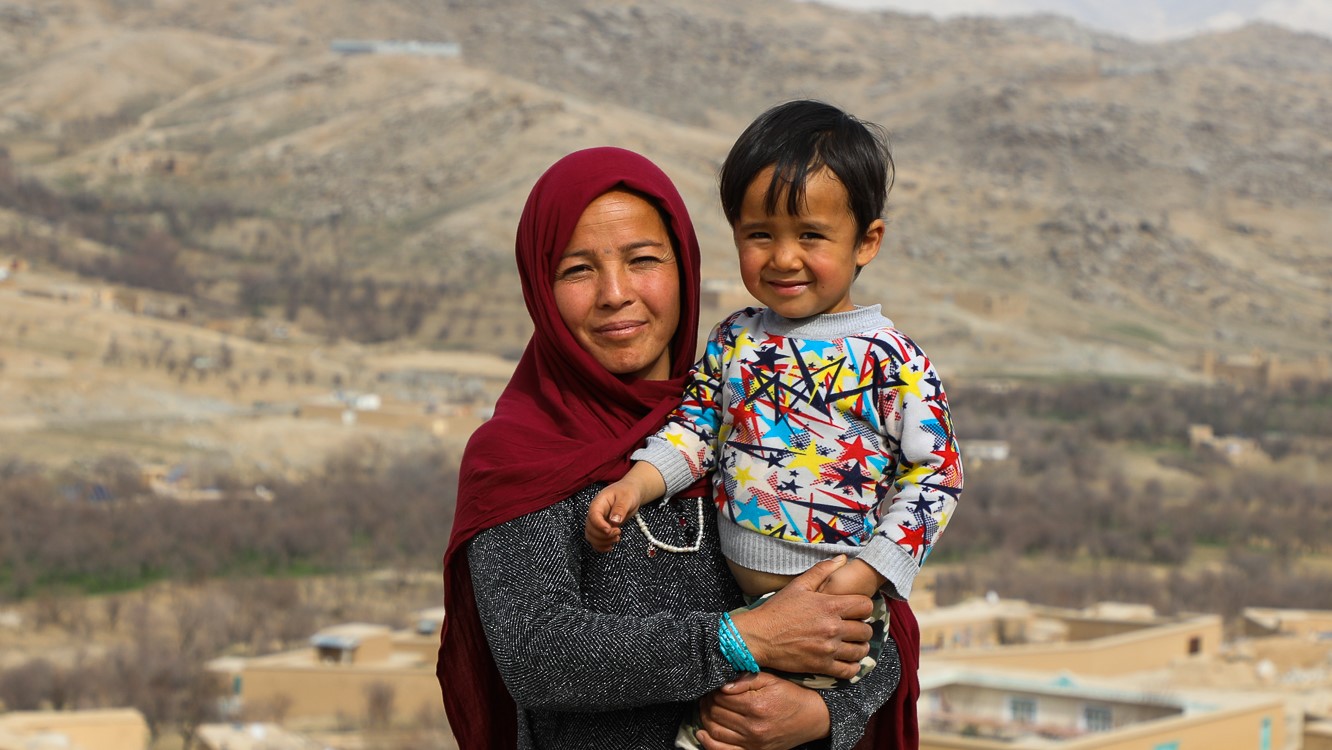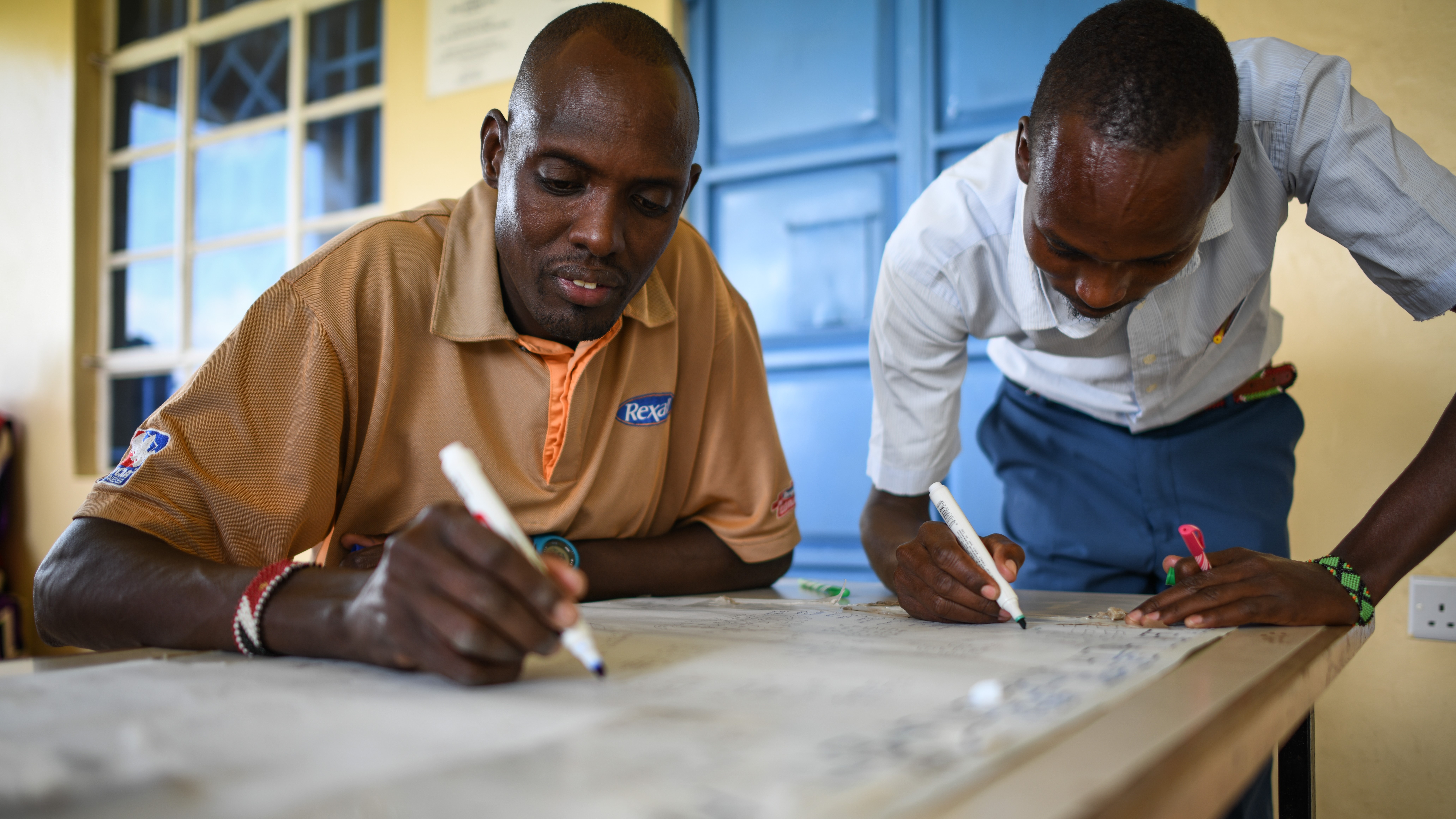For a community-led response
The Collective Service enables collaboration between a wide range of organisations to increase the scale and quality of community engagement approaches. It catalyses and accelerates expert driven, collaborative, consistent and localised support for governments and partners involved in the national response to public health emergencies and other crises.

Latest News
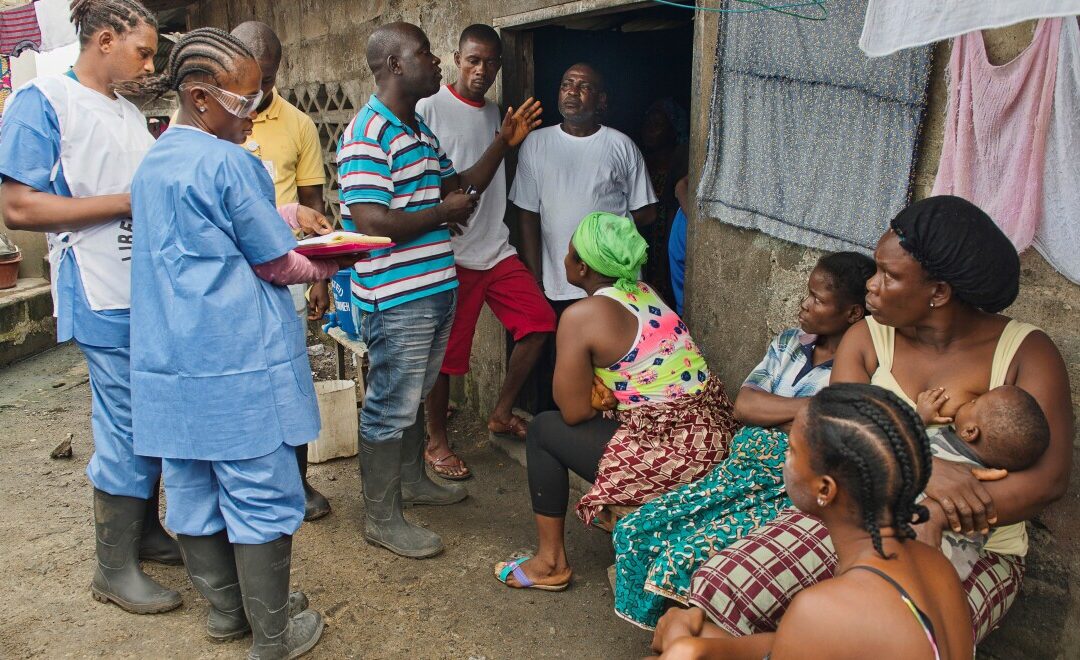
Building Trust and Resilience for Better Outbreak Response in East and Southern Africa
Trust in health authorities and health services before, during and after public health emergencies is critical. Where higher level of trust in health authorities exists, communities are more likely to follow public health recommendations and seek health care, resulting in more rapid and effective outbreak response.
An erosion of trust in health services and the health system more broadly can result in families being less likely to seek health care when needed, including critical preventative care such as immunisation services, undermining the public health system.
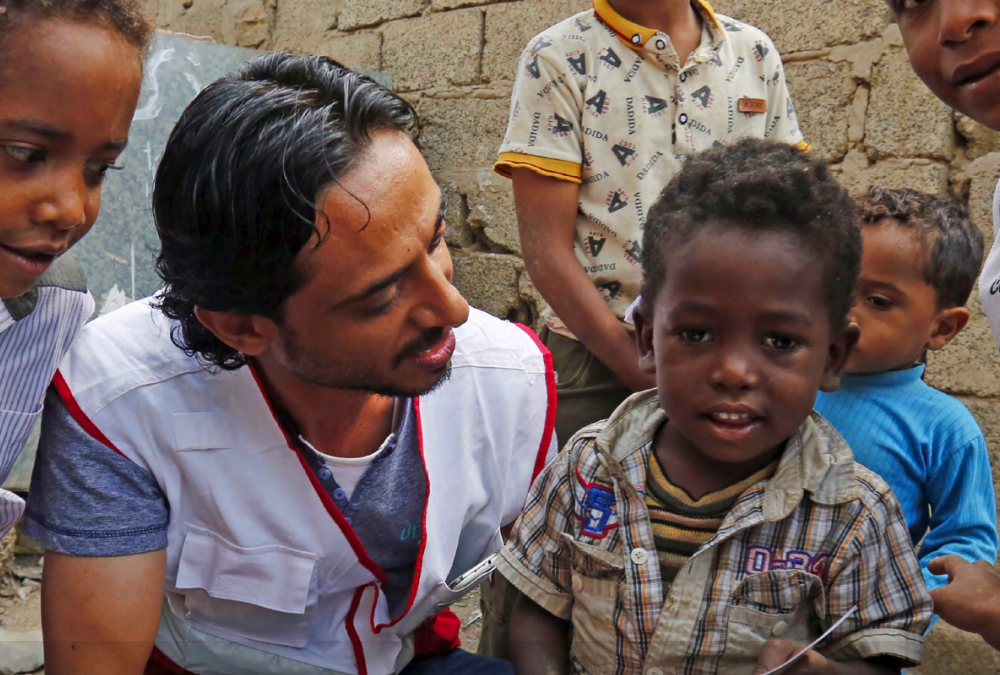
GUIDANCE FOR INTEGRATING COMMUNITY ENGAGEMENT INTO NATIONAL CHOLERA PLANS
This guide was developed to contribute to the Global Task Force on Cholera Control Interim Guiding Document to Support Countries for the Development of their National Cholera Plans. It focuses on the integration of community engagement approaches.
This guidance has been developed for use by those involved in designing, developing and implementing a National Cholera Plan for Control or Elimination (NCPs) at country level.
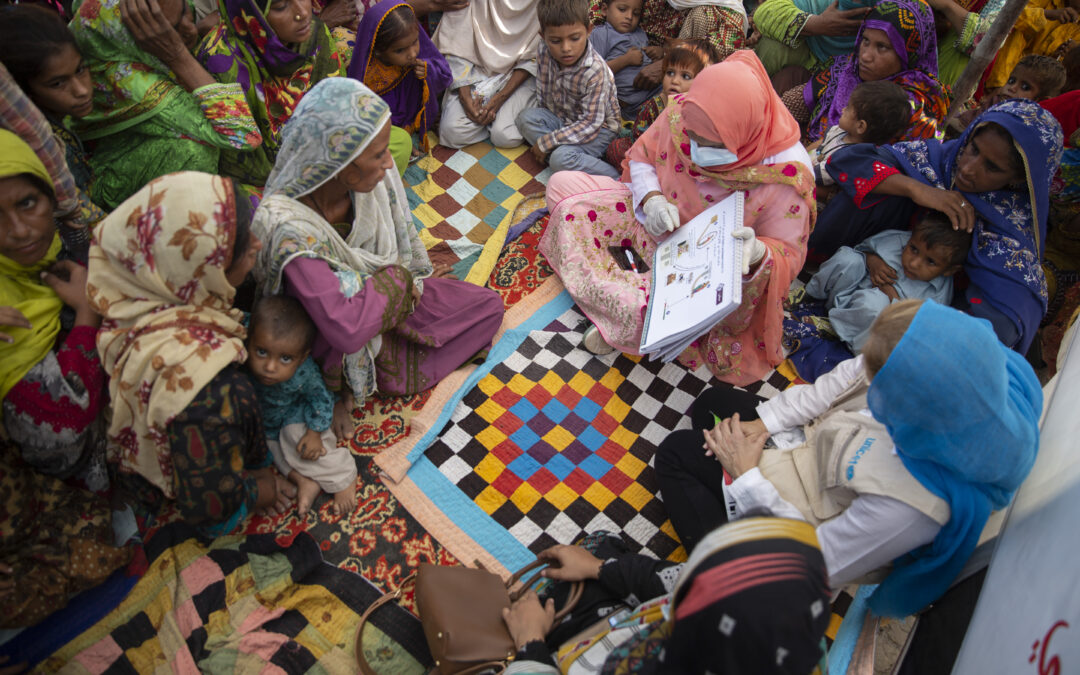
WEBINAR REPLAY: From Crisis to Coordination: What have we learned from the Evaluation of the Collective Service?”
Last Tuesday, the webinar dedicated to the joint evaluation of the Collective Service took place and was hosted by UNICEF. The one-hour information session presented the results of how the collaboration of the three partners — IFRC, UNICEF, and WHO — has impacted public health coordination, discussed its challenges and achievements, and provided strategic recommendations for the future of the service.

UK-Med survey on integrating health humanitarian projects in academia
UK-MED is conducting a survey to assess the needs of universities regarding integrating health humanitarian topics into health-related curricula and implementing health-related humanitarian research projects. The insights from academic professionals are crucial in fostering collaboration between humanitarian organisations and academic institutions.
The survey is designed to be completed under 10 minutes.
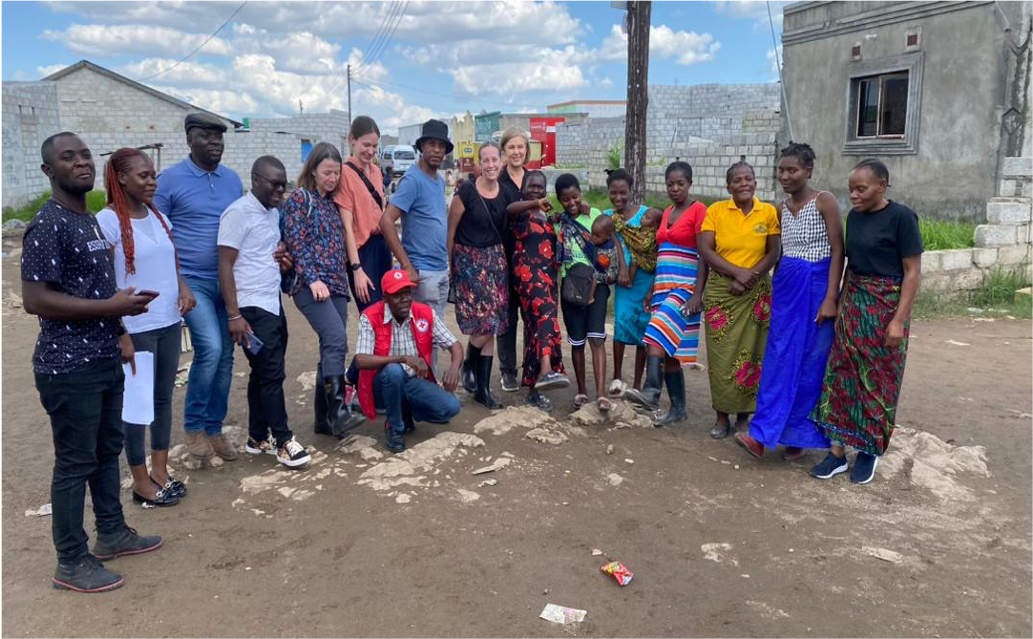
Zambia: Latest RCCE activities update in response to the ongoing Cholera outbreak
In support of the Dynamic Listening and Research Subgroup under the Risk Communication and Community Engagement (RCCE) Pillar, co-led by the Ministry of Health (MOH) and Zambia National Public Health Institute (ZNPHI), UNICEF is working with the Zambia Red Cross Society (ZRCS) and University of Zambia (UNZA), supported by UKHSA and US CDC to undertake a series of rapid qualitative assessments (RQA) to better understand transmission dynamics and community perceptions towards causes of cholera, prevention measures and treatment.
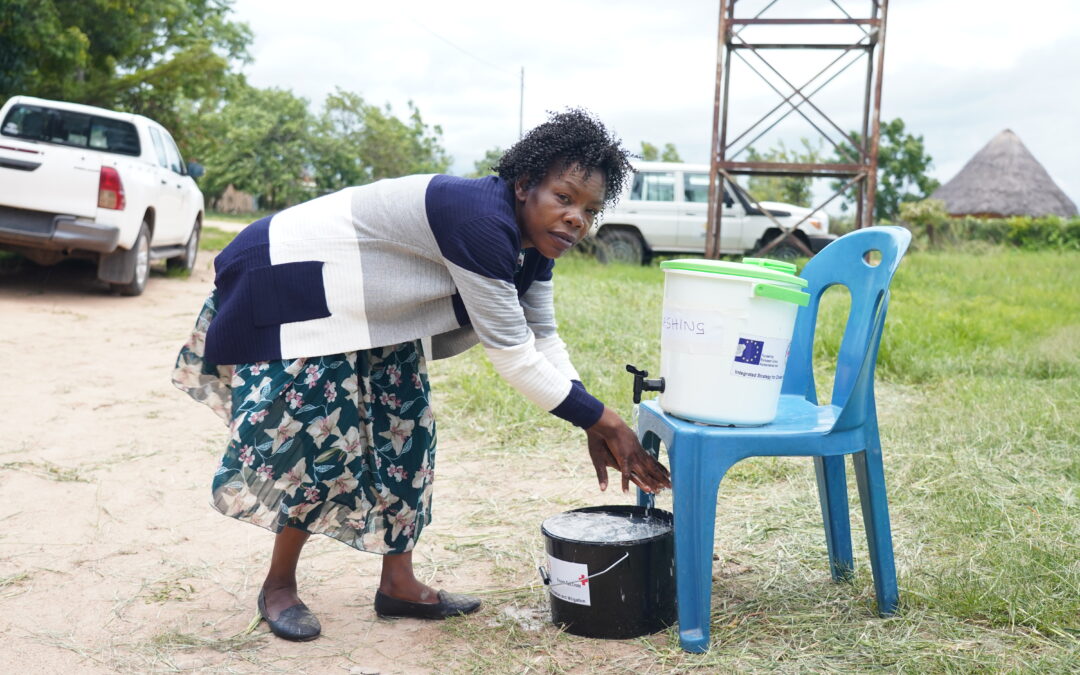
Promoting community-centred preparedness and response to cholera’s global surge
In the context of the global cholera upsurge and in particular the most recent outbreak in Zambia, Eva Niederberger (Anthrologica), Santiago Ripoll (IDS) and Tom Barker (IDS) blog about the importance of centring cholera outbreak preparedness and response strategies on the circumstances and needs of communities and the experiences and insights of local responders.
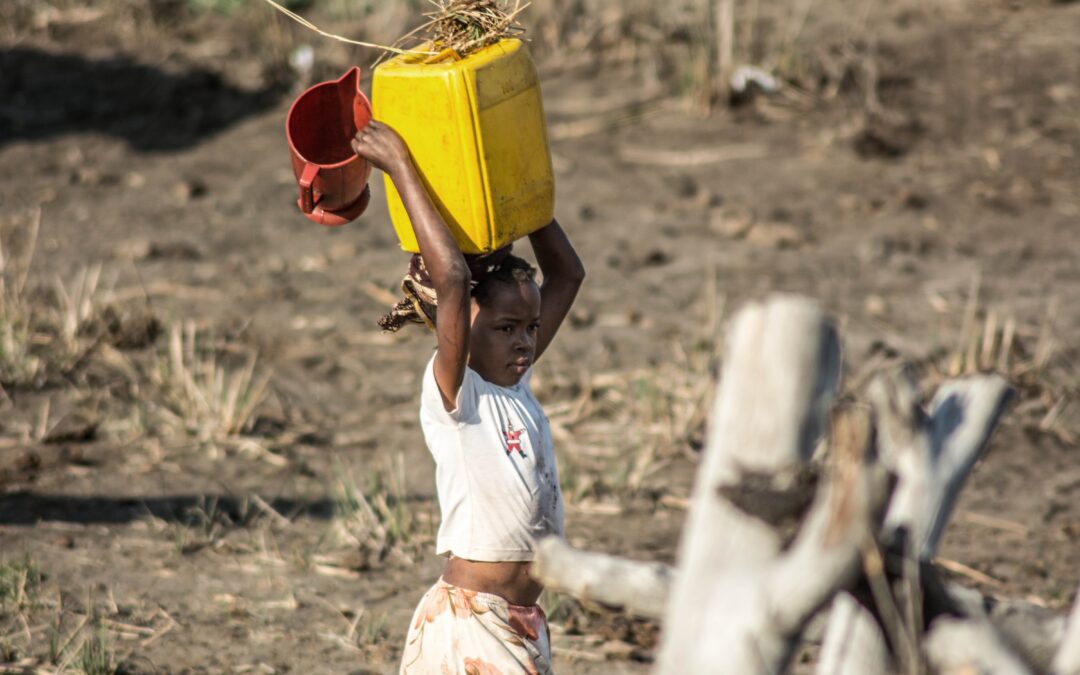
Global Call | RCCE Collective Service Update: Focus on cholera outbreak and RCCE support
GOARN hosted The Collective Service Monthly Global Call on Tuesday, January 30, gathering approximately 40 RCCE partners from diverse agencies.
The session was dedicated to addressing the prevailing global cholera outbreak and the ongoing RCCE support initiatives, with a particular emphasis on countries within the Eastern and Southern Africa region.
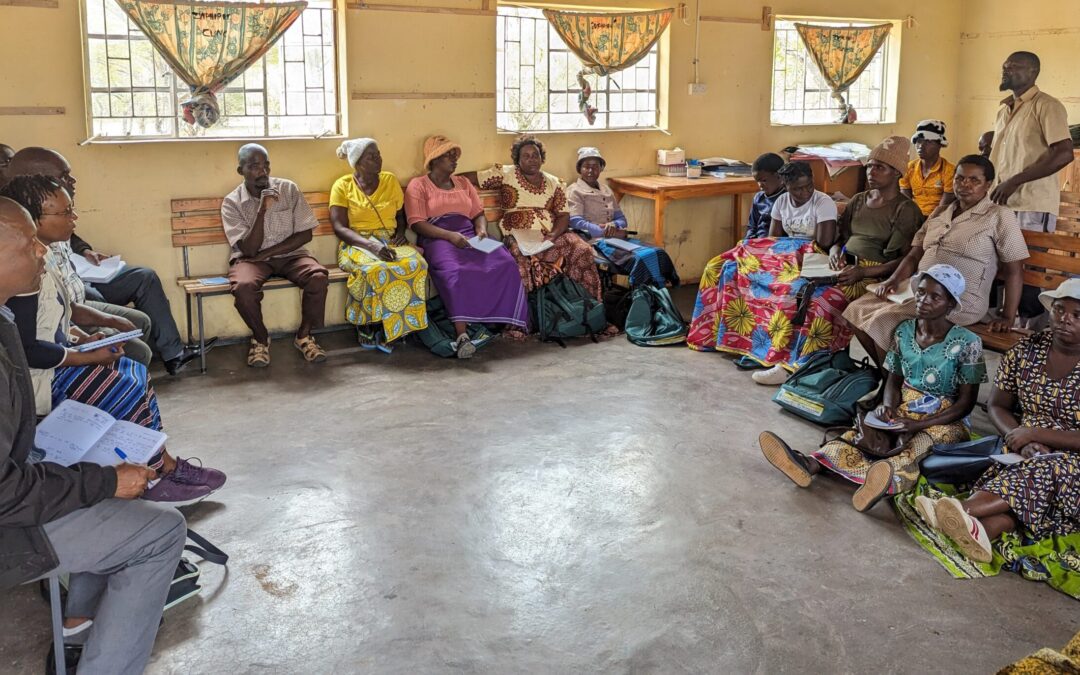
Zimbabwe: CHOLERA Situation Overview and Collective Service Operations Brief
Per the request of the Ministry of Health (MoH), Collective Service (CS) partners conducted focus group discussions in communities and rapid qualitative assessments (RQAs) to gather and share insights from Kuwadzana, Glenview, Mutare Rural, and Gutu districts. The UK Public Health Rapid Support Team (UK-PHRST), an innovative partnership between the UK Health Security Agency and the London School of Hygiene & Tropical Medicine, provided critical staff support in RCCE coordination with an RCCE Specialist seconded to UNICEF, to undertake this work.
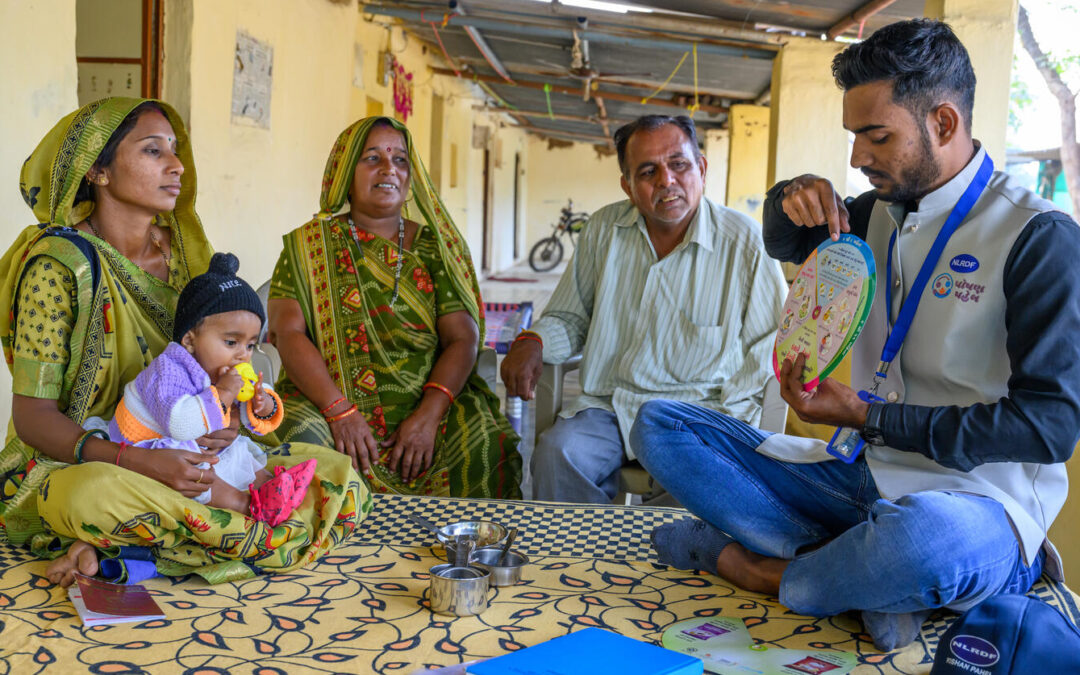
Joint Evaluation of the RCCE Collective Service
An independent evaluation of the Collective Service was carried out between January and November 2023 and was jointly managed by the evaluation offices of IFRC, UNICEF and WHO. The purpose of the evaluation was to assess the Collective Service’s contribution to strengthening RCCE systems in the public health and humanitarian response to the COVID-19 pandemic, and to make suggestions and recommendations to the Service partners’ decision-makers on the future strategy, vision and coordination model.
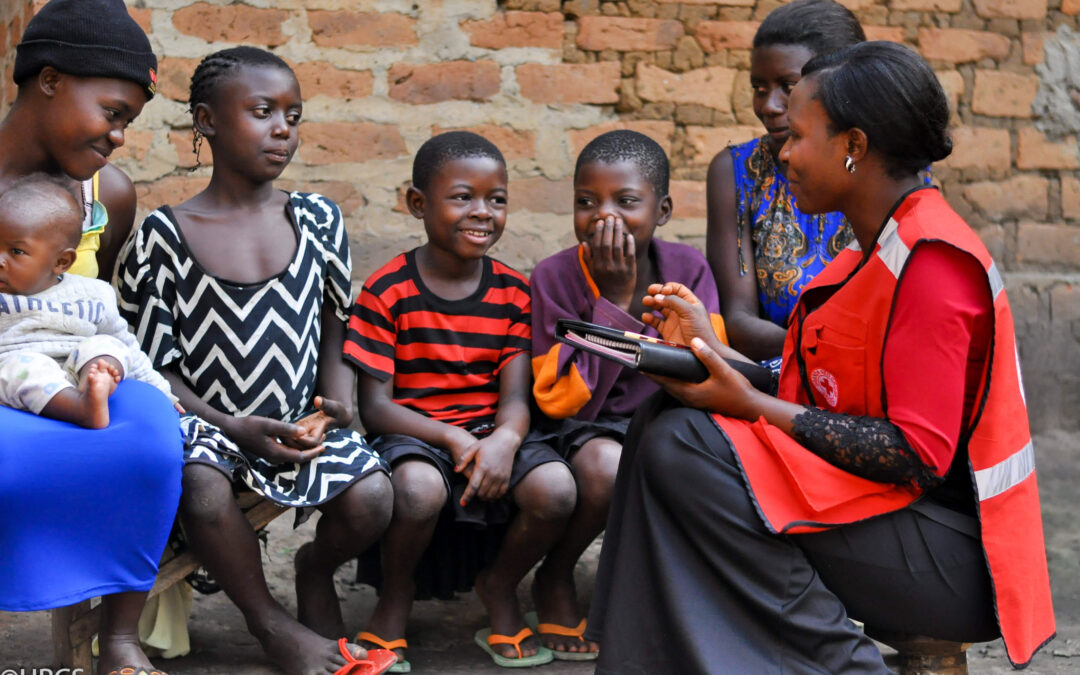
HARMONISING COMMUNITY FEEDBACK TO HELP END THE EBOLA OUTBREAK IN UGANDA
Interagency Community Feedback influenced the delivery of Risk Communication and Community Engagement (RCCE) in Uganda, ultimately saving lives.
In 2022, across the globe, a steep decline in COVID-19 cases meant a time to celebrate. For public health professionals in Uganda, the drop in transmissions signaled something else, too: opportunity. The country’s Ministry of Health recognized that it could harness community feedback tools developed during the pandemic to curb future public health emergencies.

Call for applications for the first Arabic SSHAP Fellowship
The Social Science in Humanitarian Action Platform (SSHAP) is launching the next phase of its Fellowship Programme to begin in February 2024. Funded by the UK Foreign, Commonwealth and Development Office and the Wellcome Trust, SSHAP is looking for future leaders in social science to be able apply their knowledge to humanitarian emergencies in a locally relevant way.
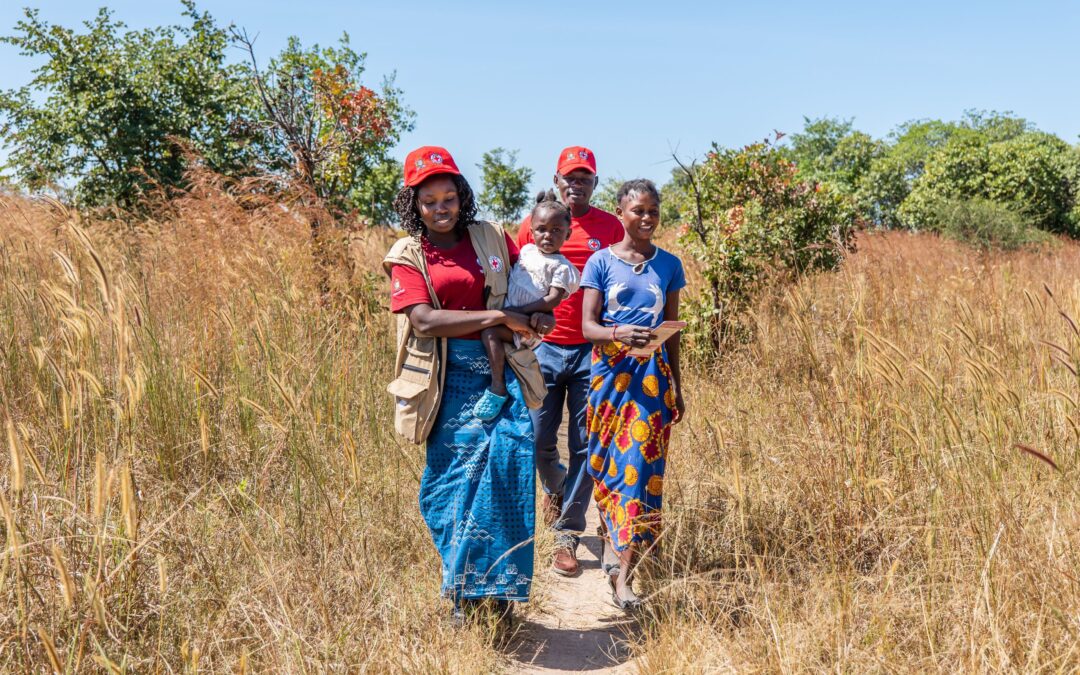
LISTENING TO COMMUNITIES IS KEY TO PREPARING FOR THE PUBLIC HEALTH IMPLICATIONS OF EL NIÑO IN ZAMBIA
Extreme weather deepens public health emergencies, but interagency community listening tools can help officials and responders prepare for impending crises.
In Zambia—where drought threatens to intensify the existing anthrax and cholera outbreaks—the Collective Service is collaborating with the Ministry of Health to harness the power of community feedback.
Thematic Kits
Mpox
Key documentation and products developed by partners for supporting Community Engagement for Mpox (Monkeypox) Response
Marburg
Key documentation and products developed by partners for supporting Community Engagement for Marburg Response
El Niño Event
Key Documentation and Products Developed by Partners to Support Community Engagement in El Niño Event Response and Its Related Impacts on Health
Cholera
Key documentation and products developed by partners for supporting Community Engagement for Cholera Response
Covid-19
Key documentation and products developed by partners for supporting Community Engagement for COVID-19 Response
Ebola
Key documentation and products developed by partners for supporting Community Engagement for Ebola Response
Earthquake
Key documentation and products developed by partners for supporting Community Engagement for Earthquake and Tsunami Response
Drought
Key documentation and products developed by partners for supporting Community Engagement for Drought Response
Save the Date
No upcoming events.
LATEST RESOURCES
This section highlights the latest available resources, including tools and materials, deep contextual analysis, research papers, and expert briefs from the Collective Service and various partners. The main topics cover information, risk communication, and community engagement (RCCE), Social Behaviour Change (SBC) for preparing and responding to multiple public health outbreaks.
Interim guidance on social and behavioural research for the mpox public health response
Sep 5, 2025RCCE Readiness and Response Toolkit Mass Gatherings
Sep 5, 2025WHO framework for civil society organization engagement in health emergencies
Sep 5, 2025Questions bank for healthcare workers during infectious disease outbreaks
Sep 2, 2025Risk communication and community engagement readiness and response toolkit Zika virus
Oct 23, 2024Community conversation kit: everyday conversations to protect community health against infectious disease
Jun 18, 2024Risk communication and community engagement readiness and response toolkit: yellow fever
Jun 14, 2024Risk communication and community engagement readiness and response toolkit mpox
Jun 14, 2024
Our Work
The Collective Service is developing with its partners a list of key tools to support Risk Communication and Community Engagement for specific responses. Explore here all guidances, tools and materials useful for the following emergencies.
Services
Coordination
Our technical team helps partners and responders make the most of existing resources, enhance collaboration and tap into needed support when engaging and communicating with communities before, during and after crises.
Social Sciences
Social science research and analysis is vital to design and deliver effective community engagement approaches and strategies as it provides valuable insights into the culture, practices and experiences of communities affected by crises.
Information Management
The Information Management team provides technical assistance to strengthen evidence generation, which helps community engagement programme design and informs the decision making process at global, regional and country level.
Tools & Products
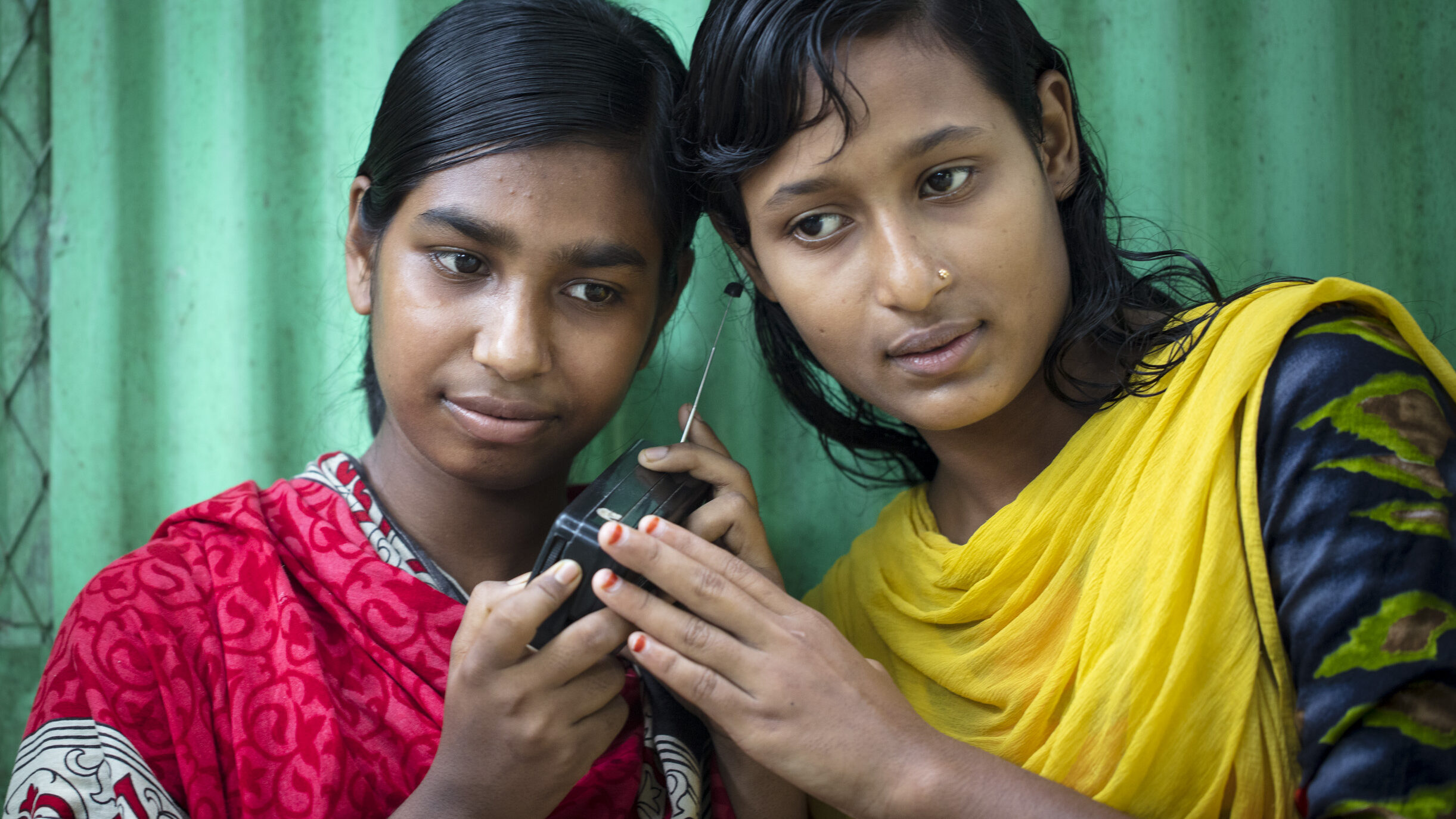
RCCE Coordindation guidance for Public Health Emergencies
The Collective Service releases an interim guidance for coordinating risk communication and community engagement activities on public health emergencies.
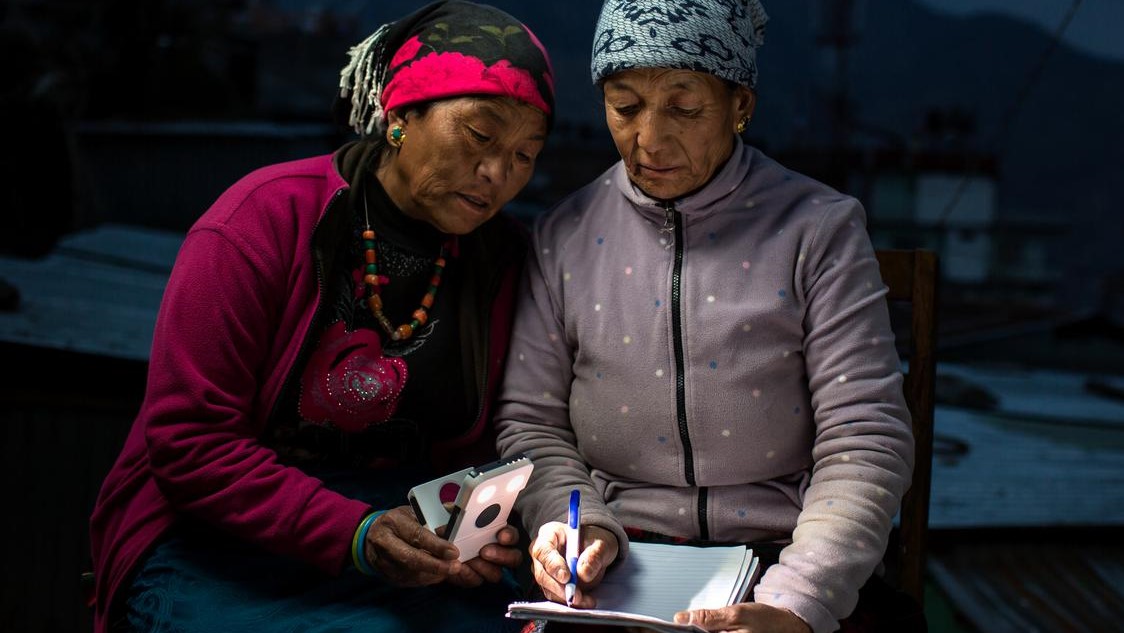
Using Social Science for Emergency preparedness and response
This training aims to aid the integration of social science in health emergency interventions and policymaking by providing a set of modules with practical guidance to be adapted and used at the local level.
Toolkits for Emergencies
The Collective Service is developing with its partners a list of key tools to support Risk Communication and Community Engagement for specific responses. Explore here all guidances, tools and materials useful for the following emergencies.
COVID-19
10 steps for readiness
Drought
Special Horn of Africa
Ebola
RCCE resources for Ebola Outbreak
Mpox
RCCE resource for MPOX Outbreak 2022
Cholera
RCCE resources for Cholera Outbreak
Earthquake
RCCE resources for Earthquake and Tusnami response
Countries Dashboard
To strengthen national-level community feedback mechanisms, the Collective Service has developed community feedback data dashboards to gather, organize, analyse, and share key information from communities that will inform and enhance partner response to public health emergencies.
Collective HelpDesk
The Collective Helpdesk provides coordinated guidance and support on Risk Communication and Community Engagement (RCCE) and Community Engagement and Accountability (CEA) related queries. It forms part of the support offering of the Collective Service and allows for quick access to technical expertise, data, and knowledge bases.
Who is the support for?
Anyone seeking rapid or in-depth RCCE and CEA technical support and resources that cannot be found at the country or regional levels.
Contact us by e-mail with your queries
Contact us
HELPDESK REQUEST FORM
Submit your queries in detail here
Contact us
Knowledge Base
See our knowledge base for answers to FAQs
Contact us

